The Canterbury Scene: How Bookish Bohemians Became Prog Monty Pythons
In the late 60s, the quaint, historic city of Canterbury birthed a scene defined by its breezy, jazz-influenced vibe, quirky lyrics, and refusal to take itself too seriously.
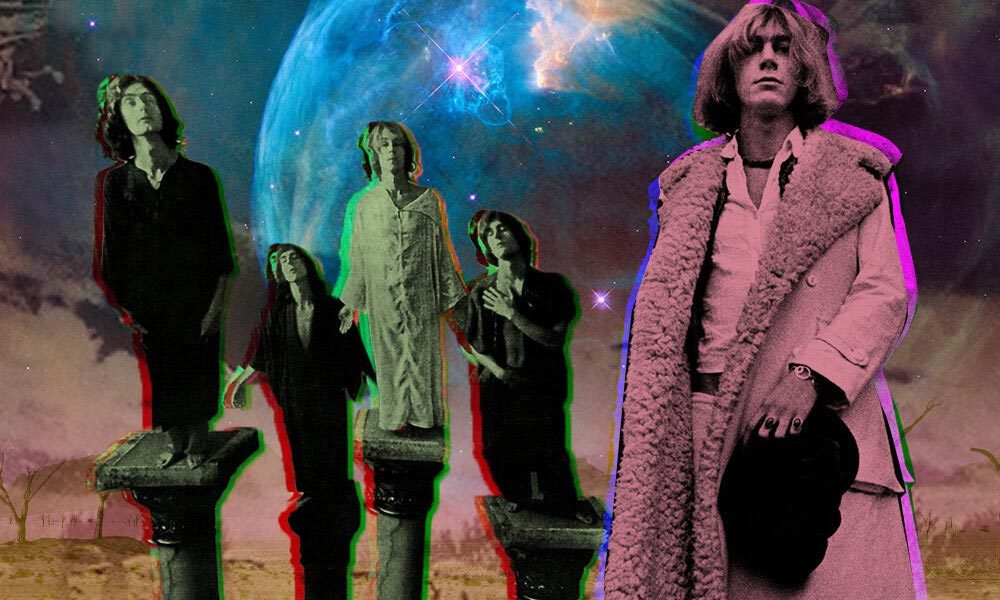
At the end of the 60s, the quaint, historic city of Canterbury became the unlikely breeding ground for an underground music scene defined by its willful weirdness and its refusal to take itself too seriously. In and around the town immortalized by Chaucer in the 14th century, dedicated nonconformists like Soft Machine, Caravan, and Hatfield and the North took mad scientist delight in breeding obscure mutations of jazz and rock templates while pulling the rug out from under people’s expectations.
The Canterbury sound blossomed in the 70s as a good-humored variant on progressive rock. Where prog with a capital “P” played out larger than life, the Canterbury scene was populated by singers who sounded like they’d be more at home in a P.G. Wodehouse novel than on an arena stage, and by songs built on subtle idiosyncrasies instead of grand gestures.
For all their musical sophistication, the Canterbury bands developed a rep as rock’s answer to Monty Python. Song titles like Hatfield and the North’s “(Big) John Wayne Socks Psychology on the Jaw” and Caravan’s “If I Could Do It All Again, I’d Do It All Over You” were the norm, as were lyrics full of droll puns, absurdist imagery, and such decidedly non-rock’n’roll subjects as chatting up girls on golf courses (Caravan’s “Golf Girl”), and impressing women with clever chord choices (Hatfield and the North’s “Licks For the Ladies”). A distinctly English style, its closest U.S. equivalent might have been the next-level instrumental excursions and tongue-in-cheek sensibilities of Frank Zappa.
Offbeat musical adventures
The genesis of the scene sounds like the plot of the least commercial coming-of-age movie ever made: A group of budding bohemian teens attend the progressive Simon Langton School in the cathedral city of Canterbury, spend the first half of the 60s discovering jazz and the avant-garde music together, and gear up for their own offbeat musical adventures.
The magnet for these mavericks-in-training was the 15-room Georgian manse belonging to young drummer/singer Robert Wyatt’s mom in Canterbury’s neighboring county of Lydden. Wyatt and his schoolmates then formed local rock/R&B band The Wilde Flowers in ‘64, who would become the root of the entire scene. But the real agent provocateur was beatnik holdover and budding hippie poet-guitarist Daevid Allen, an Australian ex-pat who’d started renting a room from the Wyatts and engaging Robert in free-jazz jams in 1961.
By 1967, The Wilde Flowers had taken a psychedelic turn and splintered into two factions. One side formed Soft Machine with Wyatt singing and drumming, Allen on guitar, Kevin Ayers on bass, and Mike Ratledge on keyboards. The other side formed Caravan, featuring singer/guitarist Pye Hastings, bassist Richard Sinclair, his cousin Dave on keys, and Richard Coughlan on drums.
Soft Machine quickly became a fixture of London’s psychedelic underground, playing in the basement-level hotspot The UFO Club alongside the likes of Tomorrow (featuring a pre-Yes Steve Howe) and Pink Floyd. When Allen was refused re-entry to the UK after a French excursion, he stayed in France, where he later formed Gong, and Soft Machine soldiered on as a trio.
Left guitar-less, they edged toward a jazzier approach. Ratledge’s organ took center stage, enhanced by a fuzz pedal, for a brash, buzzy sound that would become a Canterbury signature. Soft Machine’s self-titled 1968 debut album became the rallying cry of the burgeoning movement, with madcap tunes mixing Ratledge’s guitar-like organ with Wyatt’s sandpapery vocals and swinging drums, and Ayers’ heavily effected bass.
Prog didn’t officially exist yet – even early adopters King Crimson and Yes had yet to record – but with their reliance on keyboards and their willingness to take extended musical journeys like “So Boot If At All,” Soft Machine helped prime the pump for progressive rock.
The difference, however, was obvious from the start. Mainstream proggers counted classical music as a key influence, but the Softs were more into jazz. Instead of the fantastical, poetic imagery of lyricists like Crimson’s Pete Sinfield and Yes’s Jon Anderson, Soft Machine’s maiden voyage offered up the self-referential absurdity of “Why Am I So Short?” and the Dadaist minimalism of “We Did It Again,” which consisted entirely of the title phrase repeated over and over again, which once got the band booed offstage by impatient patrons.
A movement blossoms
At the start of 1969, Caravan released its own self-titled mission statement. Their wry perspective was apparent even in the album art, which showed the members atop pedestals in mock-dramatic poses. While more song-oriented and less anarchic than early Soft Machine, the first Caravan LP bears more than a few ‘Machine similarities, from the organ-dominated arrangements to Pye Hastings’ lyrical japery “Cecil Rons” is basically about urinating in someone’s garden, “Grandma’s Lawn” is full of lines like “hair on chest, itchy vest,” and “Magic Man” goes so far as to name-check Soft Machine. But Softs commonalities aside, in short order, Pye Hastings and his pals would be cultivating the Caravan genome in all its irreducible glory.
Another piece of Canterbury’s musical legacy fell into place when budding guitar hero Steve Hillage left post-psych/proto-prog band Uriel to return to school and the rest of the band – keyboardist Dave Stewart, singer/bassist Mont Campbell, and drummer Clive Brooks – continued without him as Egg. Despite being another organ-based trio, Egg was one of the few groups associated with the Canterbury school to toss some classical flavor into their sonic cocktail, amid all the jazz and rock.
Campbell’s droll lyrics on their 1970 debut album were completely in line with the Canterbury spirit, as he prosaically recounted the band’s recent history on “A Visit to Newport Hospital” and cast aspersions on the sensationalism of the UK Sunday papers on the sardonic “Contrasong.” After Egg disbanded in the wake of their second album, Stewart joined Hillage in the short-lived Khan. Their lone album, 1972’s Space Shanty, mixed jazz, classical, psychedelic, and prog influences for a lighthearted but virtuosic sound that found the future Gong guitarist unleashing the power of his lysergic licks in all their brain-frying glory.
Soft Machine had headed in a jazzier direction by this time, having acquired saxophonist Elton Dean and new bassist Hugh Hopper. Hopper’s unique fuzz bass sound – simultaneously fluid and cutting – became another Canterbury hallmark. Like Ratledge’s fuzzed-out organ, it could sound like a sax or a guitar, and at times Hopper and Ratledge’s riffs even seemed to swap roles. Wyatt left in late ‘71 to start the similarly styled Matching Mole, whose line-up included Caravan’s David Sinclair on keyboards and ex-Delivery guitarist Phil Miller.
Meanwhile, Caravan was really finding its stride at this point. On the band’s third album, the Canterbury classic In the Land of Grey and Pink, the impeccably British whimsy and pop hooks of the aforementioned “Golf Girl” and the complex – but approachable – 23-minute prog suite “Nine Feet Underground” solidified the odd duality that would define the band.
A new era
June 1, 1973, brought tragedy to the Canterbury scene. Robert Wyatt, who had more than one too many at a party, fell out of a fourth-floor window and permanently lost the use of his legs. He titled his 1970 solo debut The End of an Ear, but the accident truly brought about the end of an era for the scene, even though Wyatt would reinvent himself as a widely respected singer-songwriter.
The post-Wyatt Soft Machine had fully embraced its jazzy side, adopting an all-instrumental modus operandi and becoming a full-on fusion crew. But a new batch of bands cropped up in the mid-70s that were clearly inspired by what Soft Machine and Caravan had already achieved.
In the case of Hatfield and the North, the Caravan influence was only natural, since Hatfield’s first iteration featured both David and Richard Sinclair from Caravan, and Richard would remain the band’s singer and bassist throughout their regrettably short run. Both 1974’s Hatfield and the North and its follow-up, The Rotters’ Club, would become Canterbury classics. On the latter album’s opening track, “Share It,” when Richard sings “Please do not take it seriously” in his patented plummy, tongue-in-cheek tone amid a sea of crafty chord changes and swirling synth lines, the band’s uniquely Canterburian mix of breezy wit and brainiac chops swiftly leaps into focus.
After Hatfield reached the end of their run, Stewart and guitarist Phil Miller founded National Health, which picked up where Hatfield had left off, but expanded the vision further thanks to some cracking guest musicians, including singer Amanda Parsons and keyboardist Alan Gowen. The pair of albums they churned out in 1978 are among the finest late-period Canterbury pieces. Standing tall against the rising tide of punk primalism, they crafted dazzlingly intricate mini-symphonies with the virtuosity of fusion, the artful flow of classical music, and some amplifier-blowing rock ‘n’ roll bite.
Gowen’s own band, Gilgamesh, had formed in 1972 but didn’t get around to releasing its first album until three years later. On both Gilgamesh and 1979’s Another Fine Tune You’ve Got Me Into, the instrumentally oriented band showed itself to be the most explosive of the scene’s fusion warriors. Sadly, the second real Canterbury tragedy occurred in 1981 when Gowen’s brilliant flame was extinguished by leukemia. National Health regrouped to pay tribute with their album D.S. Al Coda, consisting entirely of Gowen compositions.
Going global
You might not expect a sound as singular as Canterbury’s to translate to other nations but it spread all over Europe in the 70s, especially with the help of people like BBC tastemaker John Peel, who championed the Canterburians and brought just about all of them in for radio sessions that sent the music on an even wider trajectory.
Moving Gelatine Plates, for example, emerged as the French answer to Soft Machine, embracing that band’s fuzztone fusion sound and adding a soupcon of Gallic spice. On 1973’s Voici La Nuit Tombeé, their countrymen in the band Travelling sounded similarly inclined, their keyboards/bass/drums format occasionally echoed both early Soft Machine and Egg.
Around that same time, a few of the former Canterbury crewmembers were mixing it up with like-minded French musicians. Daevid Allen had, of course, started Gong in Paris in 1969. By ‘73 the group was peaking with Flying Teapot and a line-up that included guitarist Steve Hillage (Uriel/Khan) and drummer Laurie Allan (Delivery/Robert Wyatt). As the first volume in their legendary Radio Gnome trilogy, the album sprinkled good-natured stoner-utopian philosophy that involved an alien race of “pothead pixies” over a roiling bed of jazz riffs and trippy vibes befitting the man who helped get Soft Machine going.
Elsewhere on the continent, Wigwam was working up their variation on the recipe in Finland. Their 1975 album, Nuclear Nightclub, managed a feat no Canterbury band ever matched: reaching No.1 in the artists’ homeland. Meanwhile, over in the Netherlands, Supersister was busy bringing a Canterbury vibe to The Hague with a jazz-rock sound that sometimes seemed to split the difference between Soft Machine and The Mothers of Invention. Their 1970 debut album, A Present From Nancy, made them a prog presence to rival their countrymen Focus.
With the help of history’s hindsight, we look back at the Canterbury sound of the 70s through a different lens today. Robert Wyatt is considered a national treasure, Caravan is counted as one of the great British prog bands, and the influence of the scene has filtered through to a new generation. Current artists like The Winstons and Homunculus Res in Italy, and British bands Guranfoe, Kopp, and Schnauser are all carrying the off-kilter Canterbury spirit proudly into the 2020s.
All in all, the Canterbury tales didn’t turn out too badly for the scruffy batch of bookish hippies who gave the 70s rock establishment a sweetly sardonic kick in the pants.
Looking for more? Discover the Greatest Prog Rock Albums Of All Time.


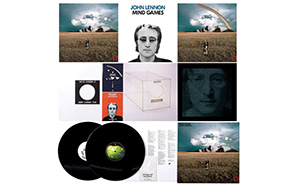
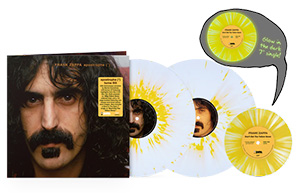

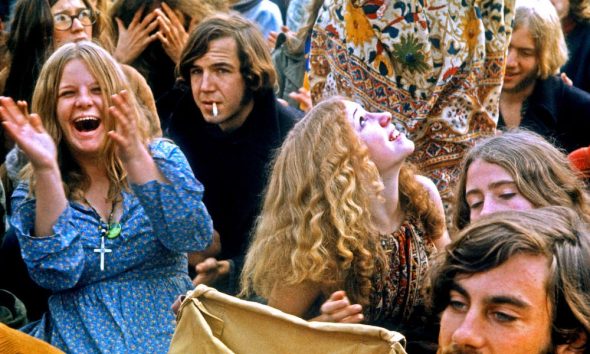
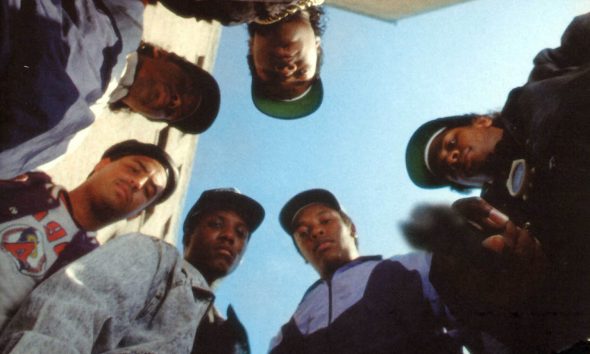

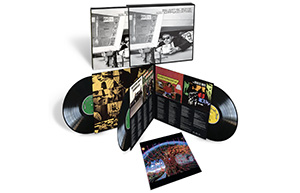

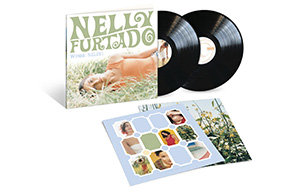
Richard Fox
October 2, 2020 at 11:07 am
Nice article about the early Prog scene in Canterbury, good to see Gong represented as they were especially influential.
I’m amused you call Canterbury a hamlet though.
Quaint and historic, definitely. But while it may be incredibly small compared to modern cities (it’s population is tiny at around 50,000), Canterbury has been a city for almost 2000 years, since the Romans (yes, the ancient Romans) turned a Celtic hill fort into a walled city.
I guess you might have trouble explaining to your mainly American readership that not only that a city can be so small, but that it can have existed as a city for well over 1000 years before Christopher Columbus was born.
R J
October 2, 2020 at 2:48 pm
The Sinclair “brothers” were in fact cousins. And as Richard points out, Canterbury is hardly a hamlet.
Frato Pomelo
October 6, 2020 at 7:46 pm
Lydden is not exactly a neighbouring county either. It’s a small village approximately 12 miles from Canterbury, 4 miles from Dover. All three are in the county of Kent.
Nice article though!!
Benjamin Sturdy
November 22, 2021 at 7:04 am
Interesting article, thank you. Please consider adding Ozric Tentacles as another band influenced by the Canterbury sound – founder member Ed Wyne has described in interviews that his early days of playing as a support act to Gong was a massive influence.
Mick White
May 19, 2023 at 10:33 am
How do they get that ‘fuzzy organ’ Canterbury sound? I know Ratledge uses Lowrey and Daves Sinclair and Stewart were Hammond (or Farfisa?) men, but I have tried and failed to get anywhere near. And although not technically part of the Canterbury scene, IMO Rick Wright’s beautiful Farfisa tone on Syd’s ‘Scarecrow’ seems to sum up the English countryside more than just about any other work, and let’s not forget Hugh Banton of VDGG and his organ sounds.
Sam Marsh
September 18, 2023 at 1:30 am
To get those organ sounds, you have to run the organ through a fuzz pedal.
Jean Otton
September 23, 2023 at 10:45 am
I suppose that “Kopp”, mentioned at the end among today’s Canterburyish bande, is actually the delightful Ryan Stevenson’s project ZOPP ?